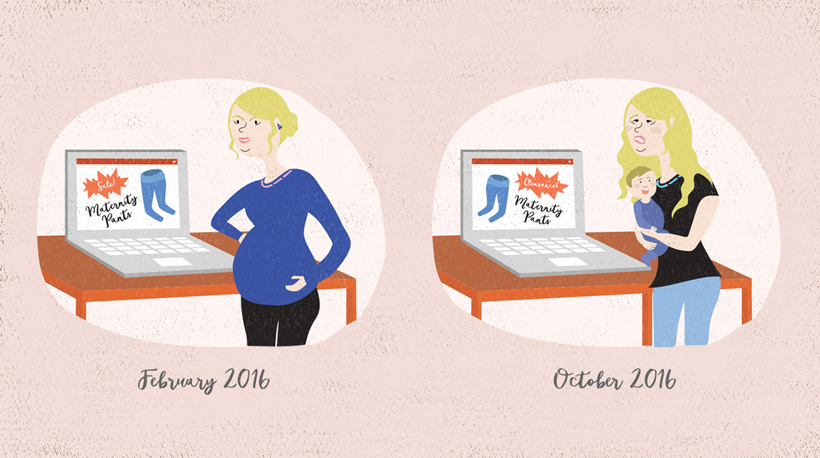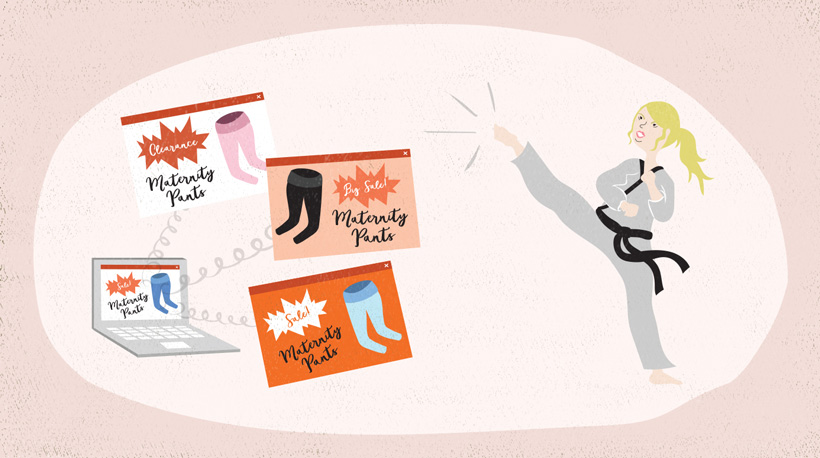Digital Media Literacy -
What is Targeted Advertising?

Digital Media Literacy
What is Targeted Advertising?


/en/digital-media-literacy/what-is-clickbait/content/

Advertising is everywhere online, but we’ve gotten pretty good at ignoring it. To win back our attention, advertisers have adapted to our digital viewing habits by remembering what we read and buy online, then using this information to sell us things they think we might like. While it may sound strange, this practice, called targeted advertising, has become very common.
Targeted advertising is a form of online advertising that focuses on the specific traits, interests, and preferences of a consumer. Advertisers discover this information by tracking your activity on the Internet.
Here’s one of the most common methods: Let's say you go to Amazon to look for a new Paul McCartney CD. In order to keep track of your visit, Amazon creates a file called a cookie on your computer. Later, when you're reading an article on Slate, automated advertisements read this cookie and generate ads for items related to your Amazon visit, like other Paul McCartney albums or a Beatles T-shirt.

The good thing about targeted ads is that you'll see ads for products you actually want. However, this system isn't perfect. Even if you only visit a page once, you may see ads for that particular product for quite some time. For instance, you may keep getting ads for maternity wear long after you’ve given birth.
Aside from cookies, advertisers also learn about you in other ways, like checking your search engine history and finding your personal information on social media.
Targeted advertising could be seen as an invasion of privacy. However, remember that all of the information you submit to the Internet can be tracked, whether it be search engine requests, social media updates, or the websites you visit. And if it can be tracked, this information may return to you in the form of a targeted ad.
The more advertisers know about you, the more they assume about your buying habits. Age, gender, income, relationship status: Advertisers will take whatever they can get if it means they could sell you something.
For instance, the Facebook profile below contains biographical information that advertisers would love to know. According to the profile, this user is a young, art school-educated woman who lives in a big city. Based solely on this information, advertisers could send her numerous targeted ads that may appeal to her.

Yes. If you're shopping for work boots on your laptop, you can get targeted ads for work boots on your smartphone, even though you never browsed for boots on the device. Advertisers can now guess who you are by analyzing your location, browsing habits, and the types of sites you sign in to, like Facebook or Google. And the crazy part? Their guesses are surprisingly accurate, according to articles from Digital Trends and MIT Technology Review.
The advertisers that collect and use this data claim to not keep sensitive personal information on file, but it's difficult to figure out exactly what these big-data advertisers know. Unfortunately, this type of data collection is becoming the norm and currently there are no regulations against it, meaning it will likely be around for years. Thankfully, there are a few things you can do to fight back against the ads.

First, a good rule of thumb for browsing online: Assume that nothing you do online is private.
Next, if you simply want to stop seeing ads, download an ad blocker for your web browser, which should get rid of most of them. To prevent advertisers from tracking your information altogether, you have a few options:
Also, all web browsers have a private browsing mode that doesn’t record your history or cookies. However, this mode will not prevent targeted ads, as advertisers can still track you in other ways, like your search engine history and social media information.
Online ads aren’t going away anytime soon, and targeted advertising is proof that advertisements have adapted to the changing tastes and habits of consumers. Now that you understand how advertisers learn about you and your online activity, targeted ads should no longer surprise you.
/en/digital-media-literacy/how-ads-and-clicks-shape-the-internet/content/